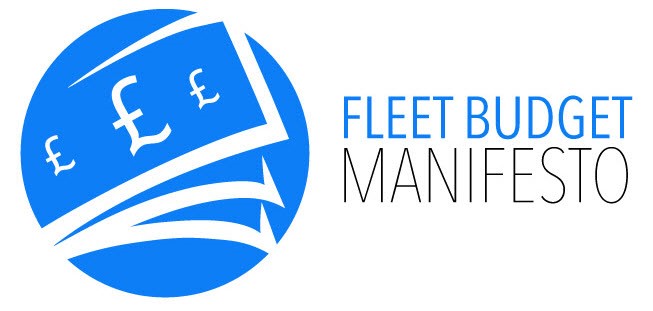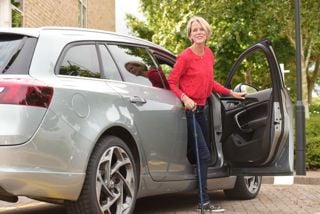Fleet News is once more putting pressure on Chancellor of the Exchequer Phillip Hammond to address key challenges to the effective running of fleets in 2019.
Fleet News Budget Manifesto Summary
The Fleet News Budget Manifesto, devised by leading fleet publication Fleet News in 2018, with the support of the British Vehicle Rental and Leasing Association, fleet trade association ACFO, fleet training body ICFM and hundreds of fleet operators, leasing companies, manufacturers, suppliers and company car drivers, identified six key areas that it wants Hammond to consider.
Fleet News' editor and author of the manifesto Stephen Briers said: "Company Car tax is a powerful tool to influence the behaviour of businesses and individuals.
"A fair, consistent and well-signalled system can play a vital role in helping achieve the Government’s cross-departmental policy ambitions on the Road to Zero.
"However, at present, this is not the situation, which is costing British business money, negatively impacting the environment and will, ultimately, negatively affect Treasury revenues."
Key recommendations
- Realign benefit in kind tax tables to take into consideration CO2 emissions under WLTP.
- Bring forward the 2% BIK incentive for ULEVs to April 2019.
- Raise ULEV incentives through a long-term commitment to plug-in grants.
- Commit to a longer-term view of BIK – five years.
- Begin consultation about future and alternative company car taxation policies.
- Reconsider the 4% diesel supplement.
Background
The company car sector is a major contributor to HMT revenues.
The relentless rise in company car tax has seen employees contribute £360 million more in benefit-in-kind tax to Treasury in the year to 2016/17, a rise of 24%, to £1.85 billion, according to Fleet News analysis of the latest figures.
Add in National Insurance Contributions, and the increase rises by another £30 million. Collectively, BIK and NIC are now worth £2.48 billion.
However, the number of people paying BIK has fallen from 960,000 to 940,000, which means the average annual cost to a company car driver has risen by £472 to £2,638, or almost £40 per month.
Number of Employees Paying CCT Against Tax Liability (£m)

Source: HMRC Benefit in Kind statistics
That’s a 22% increase at a time when wage rises were hovering around the 2% mark.
In addition, more than half of people paying BIK earn less than £40,000, putting them in the 20% tax bracket. They are not the nation’s wealthy.
It is little surprise, then, that fleets are reporting growing enquiries from employees about cash allowance, with some already seeing a trend away from company cars.
Sewells research suggests that the proportion of perk car drivers switching to cash is set to increase from 29% to 39%, while a Fleet News poll suggests the impact is being felt by 75% of companies
This has major implications for Government tax take if the trickle becomes a flood. It will also have significant implications for the environmental agenda as research shows cash takers tend to buy either older, more polluting cars or new higher CO2 emissions cars – freed up from the BIK incentive to go green.
Company cars average 112.7g/km in CO2 emissions, compared to the market as a whole at 122.3g/km.
According to BVRLA analysis, the average personal lease car emits 12% more CO2 than a company car, while the average grey fleet car emits 22% more CO2.
In addition, around 71% of company cars (Fleet News' research) are business-need, which means staff have little option but to absorb the tax increase as they are required to have the car as part of their job role. Just 29% are perk.
“Here at Red Bull UK the current uncertainty and contradictory messages has created the worst of both worlds for our drivers and our management.
"We have entered a position today where the business is almost paralysed due to the lack of reliable information on hand to make informed decisions on vehicle purchases for our business.
"We have deferred all car purchases in 2018 and cannot hold off any longer in Q1 2019 and may now consider widening the opt out for cash allowance for some roles.
"BIK has risen sharply on even our lowest diesel CO2 vehicles, and now for anyone taking a new car over four years they are entering the unknown for a part of this period. This impacts people even before we add in the new WLTP testing impact.
“We believe that the views of the industry appear to not have been heard which is why I am fully supporting this initiative to get a voice at this critical time with the Autumn Statement just weeks away now.
"The government risks shooting itself in the foot if they are not listened to as there will be a real risk that the move to opting out will lead to a massive downturn in taxes raised, as well as a potential to see CO2 rising again.”
David Oliver, procurement manager, Red Bull, which has 216 company cars
Recommendation 1: Realign benefit in kind tax tables to take into consideration CO2 emissions under WLTP
This is a central tenet of the Fleet Budget Manifesto: there should not be any distortion caused by the transition and use of correlated NEDC (and, from 2020, full WLTP) figures for tax purposes.
With correlated NEDC on average resulting in increases in CO2 emissions of 10g/km, and WLTP expected to double that rise, cars will jump several tax bands. Combined with the current BIK scheduled year-on-year rises, this double-whammy will hit company car drivers hard, as well as employers national insurance contributions.
In addition, the European Union has stated that WLTP should not be revenue raising for nationals, something that has been taken on board by a number of countries including:
- Netherlands: the correlated NEDC values will be used for taxation purposes until the end of this year. From January 1, 2019, new tax levels will be introduced that compensate for the increase in CO2 emissions resulting from the new WLTP test.
- Germany: has indicated that it will make changes from January. Details have not been announced, but the government will adapt tax bands to take WLTP into account.
- Ireland: Irish Government is reportedly considering widening tax bands to account for higher emissions.
“Clear guidance is required to allow driver and fleet operators make informed decisions.
"We are seeing drivers opt out and take cash, however our essential users do not have this option and they are now finding that the car they may aspire too is no longer within their allowance and they have to take a smaller vehicle that could well be unacceptable for the role they undertake.”
Steve Winter, head of fleet, Centrica, which has 2,200 company car drivers
Another major fleet operator, who asked not to be named, said: “The Government needs to realise that the tax collection revenues will fall unless they make company car tax sustainable again.
"What's needed is balance. Short term tax take is rising, largely as most company car drivers have a three- or four-year tie in to their current vehicle.
“However many of those will give up the company car at their next renewal. Fewer company cars will see a falling tax revenue for the Government with drivers who previously had new economical company cars (that helped reduce pollution and supported the UK motor industry) swapping into older (second-hand), more polluting vehicles or new personal lease or PCP vehicles where the pressure on taking a low CO2 vehicle is relaxed.
“An effective Company Car Tax regime promotes efficient vehicles and can provide a good income for the government. But if it becomes (as it risks now) too greedy it will do neither thing as drivers vote with their feet.”
Ian Hughes, managing director at contract hire and leasing company Zenith, said: “In the longer term, WLTP will create a more accurate way for fleets to measure the environmental credentials of vehicles and control fuel costs.
"It was, however, not the intention of the European Commission that governments use this as a means of increasing tax revenues.
“A means of rebasing or refunding drivers for any tax increases should be addressed as a priority in the Autumn Budget.”
Recommendation 2: Reconsider the 4% diesel supplement.
The 3% diesel supplement should’ve been removed in 2016, but the government backtracked following the diesel scandal. It then added another percentage point for all cars not meeting the yet-to-be-introduced RDE2 test.
However, testing by Emissions Analytics shows that the latest Euro 6 diesel engines are far more efficient for NOx and particulate emissions. In fact, it points to at least 20 models, including cars such as Volkswagen Passat 1.6- and 2.0-litre diesels, BMW 5 Series 2.0-litre diesel, Mercedes C-Class and E-Class 2.0-litre diesels, and Vauxhall Insignia 2.0-litre diesel, that comply with RDE2 (rated A or A+).
In addition, while the transition to electric has begun, diesel remains the best – and only - option for many fleets and drivers, both from a range and cost perspective. We believe the diesel supplement should no longer apply.
Ian Hughes commented: “The 4% supplement unfairly penalises drivers whose only feasible option is a diesel vehicle in the short term.”
Recommendation 3: Bring forward the 2% BIK incentive for ULEVs to April 2019.
BIK for ULEVs will rise next year to 16% for vehicles up 50g/km, including zero-emission cars. It then drops to 2% in 2020. This is disincentivising company car drivers to adopt ULEVs in the short-term.
“This is punitive for those considering moving to hybrid technology which the Government claims to champion and yet, at the same time, it is reducing the grants and raising BIK to levels that make these cars far less attractive considering their generally higher purchase prices due to the technology.
The Government should review its BIK rates for such vehicles to support their uptake.”
Fleet comment on fleetnews.co.uk
Claire Evans, Zenith head of fleet consultancy, said: “The adoption of these technologies is being held up.
"The price of these cars over their petrol and diesel counterparts is higher, even after the grant, so it's likely that drivers and fleets will wait for the 2% company car tax rate to be introduced in 2020 to go greener in their fleet choices.”
Recommendation 4: Raise ULEV incentives through a long-term commitment to plug-in grants.
Currently, fleets receive a grant of up to £4,500 off the price of a full electric vehicle, £2,500 off a plug-in hybrid and £8,000 off a van until October. They grant will continue ‘in some form’ until 2020.
As ULEVs tend to be higher in price than diesel and petrol alternatives, the plug-in grant is key to bringing costs down. Fleets need confirmation about the future of the plug-in grant.
Claire Evans said: “There needs to be a commitment from the government for continuing the plug-in vehicle grants until the cost becomes comparable with diesel and petrol equivalents. Having a longer commitment would give fleet operators more confidence to place ULEVs onto their policies permanently.”
Recommendation 5: Commit to a longer-term view of BIK – five years.
Lobbying by BVRLA and ACFO had persuaded the Government to agree to a four-year period of notice for BIK thresholds. This has since been benched, which is causing fleets and drivers real headaches.
Ian Hughes said: “The optimum contract length for a lot of fleet vehicles is 48 months, and the current lack of company car tax rates from 2021 is causing unnecessary confusion, and leading to delays in drivers selecting their next company car.
"It could lead to a lack of supply into the second-hand market that could negatively impact clean air ambition plans.”
John Pryor, chairman of fleet association ACFO and fleet/travel manager at Arcadia, said: “Fleets are looking to run longer and four years is now becoming more common with five years being considered.”
Steve Winter, head of fleet, Centrica, said: “We fully support the Manifesto document. The main points are we have over 1,000 cars to replace this year and only 50% have been replaced or ordered at present due to uncertainty over future taxation levels, well short of the requirement which will only increase our costs.”
“The recommendations of the Fleet Budget Manifesto would be hugely beneficial to me and the Company I work for, to have a clearer picture to share with the business and critically with the employee.
"I have been exploring a Company Car provision in the UK and Ireland for well over a year now.
“Whilst the ‘Duty of Care’ and reduced risk situation is stacked heavily in favour of moving from car allowance to Company Car, as is The Green issue and the cost saving to the Company, I still can’t get to grips with demonstrating the cost to the employee to enable them to decide if they want to take up the option.
“It is an absolute minefield. Despite talking within the industry and taking advice, it’s very difficult to comprehend when those providing the guidance aren’t fully sure of what’s happening themselves.
“This culminates in a situation where I’m reluctant to present a Business proposal to the Board until at the very least I can understand the implications.”
Rory Morgan, head of logistics support, Western Europe, Iron Mountain, which operates 450 vehicles
Recommendation 6: Begin consultation about future and alternative company car taxation policies.
As fleets move to ultra-low emission vehicles, CO2 emissions will fall, affecting revenues from BIK taxation. This is an inevitable outcome of CO2-based BIK taxation; therefore, Treasury should start preparing now by considering alternative schemes, taking into consideration the views of business and the public.
Claire Evans of Zenith said: “As the UK moves to zero emissions future there will be a requirement to move away from the current emissions based tax regime.
"The government should plan for this now to ensure any changes have a longer-term view and to allow for a steady transition for fleet operators.”
“Please engage with stakeholders in the fleet sector first – we have seen what happens when this does not happen.”
John Pryor, chairman of fleet operators association ACFO, and fleet and travel manager at Arcadia which runs almost 600 company cars
Additional fleet views
Paul Hollick, Chairman of fleet training and skills body ICFM: “Short sighted increases in BIK rates, ‘dieselgate’ and new emissions tests are sending company car drivers up a cul-de-sac where they can no longer avoid punitive tax rates.
Add in the recent legislation on Optional Remuneration Arrangements (OpRAs) and it all adds up to higher BIK bills for drivers as well and added costs for employers.
This is meaning most fleet managers and FDs are forced to think about whether they run a perk company car scheme at all, and I have seen a few shut already over the last month.
Online comment: “Until November, many fleets are simply putting an order hold, and then depending on the detail of company car tax changes will release a new car choice list, or move to cash allowance.
"I would ask employees to be patient with their Companies, and understand that in order to control rising costs, company cars will need to have longer leases, and the additional cost of petrol and hybrid options will mean a reduction in choice and prestige in car lists going forward.
“It is wrong for the government to change rates without giving the four years’ notice that was previously done. It is morally wrong to change the taxation of people on an environmental basis, when they are likely locked into four-year agreements.
"This point has been made to the Treasury, and we hope this will be addressed in the forthcoming Budget.”
Online comment: “At the moment our company is offering shorter, not longer, leases. I would certainly avoid a long lease ever again as you simply cannot trust the government not to pull the rug from under you.
"As someone in the choosing phase, I am considering going back to diesel because despite the higher BIK rate, when applied to a much, much lower list price (lowering my contribution) and with the much higher Hybrid BIK rates now, there isn't much between the two in total cost to driver.”
Sage & Onion online comment: “It does demonstrate the lack of joined up thinking between government departments when contracts are awarded based on meeting emissions targets or commitments whilst another department effectively taxes drivers out of low polluting cars and into older more polluting cars on cash allowance instead, which are probably mostly hidden from the required criteria when bidding for contracts.
"So it’s a bit of a farce to even expect suppliers of such contracts to meet emissions criteria when there won't be a level playing field in terms of visible fleet vehicles.
We are currently considering to remove CO2 caps to allow more petrol models onto the choice lists and it’s worth doing because when you compare whole life costs, modern petrol models with similar power outputs to diesel models quite often have a lower whole life cost (and monthly rental cost).
“We will do this until the greenhouse gas issue raises its head again and we are told (taxed) out of petrol models.
"The best choice is probably petrol hybrids at the moment. I'll bet there's more issue with exaggerated business mileage claims in fleets that operate grey fleet cars than traditional company cars.
"So having a discounted tax scheme based on the actual benefit received (i.e. business vs private miles) is something I would fully support, but it would need to have more graduated step levels than the old system of 2,500 and 18,000 business miles.”



















Login to comment
Comments
No comments have been made yet.